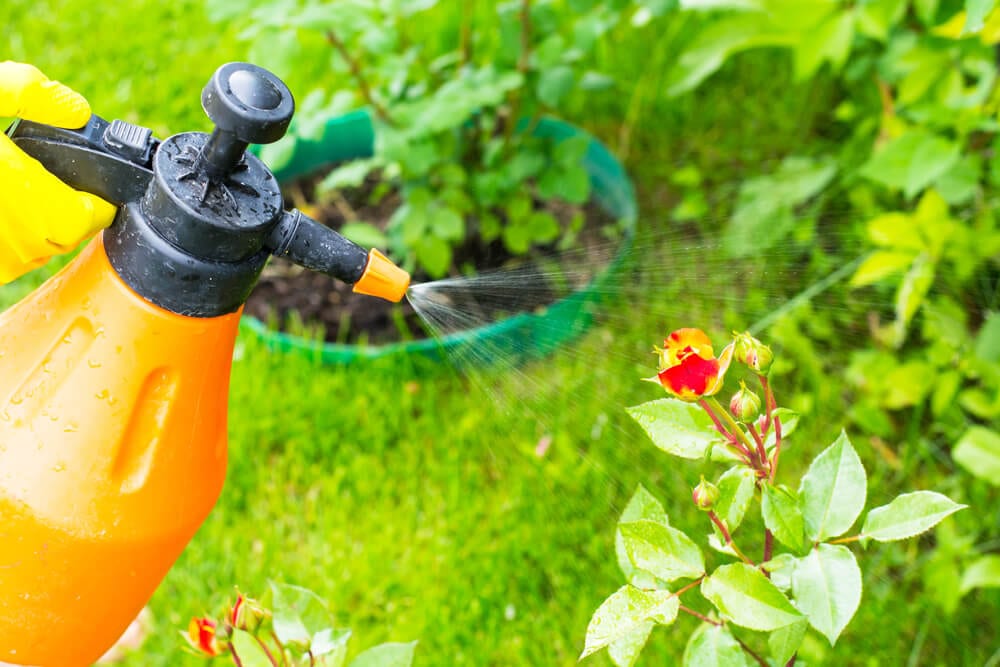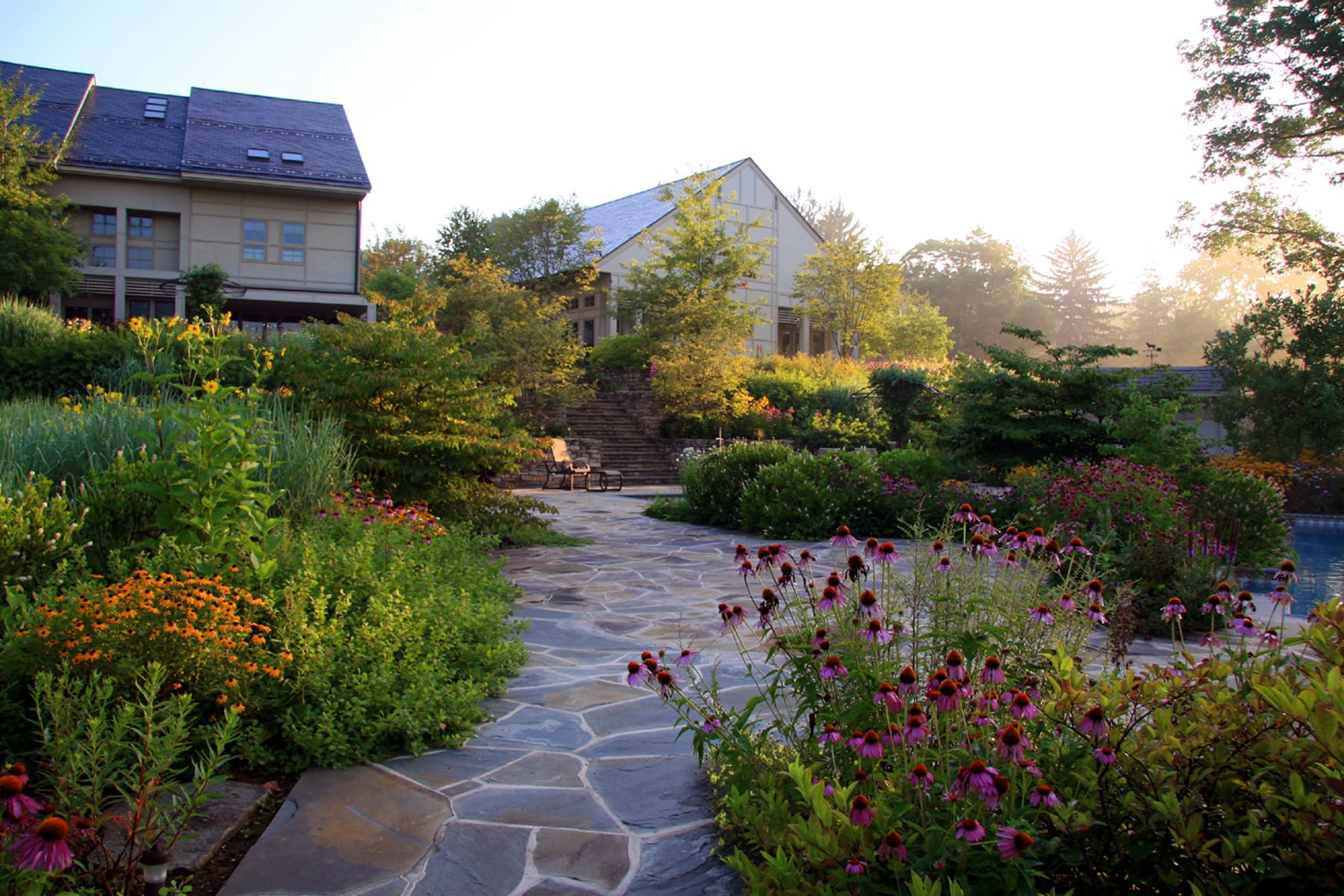Master Natural Pest Control Gardening: Your Guide to Eco-Friendly Gardening

Imagine stepping into a lush, vibrant garden teeming with life—butterflies fluttering, bees buzzing, and birds chirping. Now, picture this garden free from harsh chemicals and synthetic pesticides. Welcome to the world of gardening with natural pest control methods. This isn't just a dream; it's a reality that more and more gardeners are embracing. By harnessing the power of nature, you can create a thriving ecosystem that keeps pests at bay while promoting biodiversity. Let's dive into the fascinating realm of natural gardening and discover how you can transform your outdoor space into an eco-friendly haven.
Understanding Natural Pest Control
Natural pest control is all about using organic methods to manage pests in your garden. Instead of relying on chemical pesticides, you leverage the natural defenses and interactions within the ecosystem. This approach not only keeps your garden healthy but also supports the environment.
Benefits of Organic Pest Control
Organic pest control offers a myriad of benefits:
- Environmentally Friendly: By avoiding synthetic chemicals, you reduce pollution and protect local wildlife.
- Healthier Plants: Natural methods often strengthen plants, making them more resistant to pests and diseases.
- Cost-Effective: Many natural pest control techniques use readily available materials, saving you money.
- Sustainable: Organic practices promote long-term soil health and biodiversity, ensuring a thriving garden for years to come.
Essential Natural Gardening Techniques
Companion Planting
Companion planting is a time-honored technique that involves growing specific plants together to benefit each other. For example, planting marigolds near tomatoes can deter nematodes, while basil can repel flies and mosquitoes. This symbiotic relationship not only controls pests but also enhances the overall health of your garden.
Beneficial Insects
Did you know that not all insects are pests? Beneficial insects like ladybugs, lacewings, and praying mantises are natural predators that feed on harmful pests. Attracting these allies to your garden can significantly reduce pest populations. You can encourage their presence by planting flowers that provide nectar and pollen, such as yarrow, dill, and alyssum.
Physical Barriers
Sometimes, the simplest solutions are the most effective. Physical barriers like row covers, netting, and fencing can keep pests away from your plants. These barriers are especially useful for protecting young seedlings and vulnerable crops from insects and animals.
Natural Pesticides
If pests become a problem, you can turn to natural pesticides. These are derived from plants, minerals, or beneficial microorganisms and are generally safer for the environment. Some popular options include:
- Neem Oil: Extracted from the neem tree, this oil disrupts the life cycle of many pests.
- Diatomaceous Earth: A powder made from the fossilized remains of tiny aquatic organisms, it works by damaging the exoskeletons of insects.
- Insecticidal Soaps: These soaps break down the protective coatings on insects, causing them to dehydrate and die.
Pest Prevention Tips for a Healthy Garden
Prevention is often the best cure when it comes to pest control. By taking proactive steps, you can minimize the risk of pest infestations.
Soil Health
Healthy soil is the foundation of a thriving garden. Enrich your soil with compost and organic matter to promote beneficial microorganisms that help plants resist pests and diseases. Regular soil testing can also help you identify and address any nutrient deficiencies.
Crop Rotation
Rotating your crops each year can disrupt the life cycles of pests and diseases that are specific to certain plants. This practice helps prevent the buildup of pest populations and ensures that your soil remains fertile.
Regular Monitoring
Keep a close eye on your garden. Regular inspections can help you catch pest problems early, making them easier to manage. Look for signs of pest damage, such as chewed leaves, discolored foliage, or unusual growths.
Eco-Friendly Gardening Practices
Water Wisely
Proper watering is crucial for plant health and pest prevention. Overwatering can create a moist environment that attracts pests and promotes disease. Use drip irrigation or soaker hoses to deliver water directly to the roots, reducing the risk of pest problems.
Mulching
Mulch is a gardener's best friend. It helps retain soil moisture, suppresses weeds, and can even deter some pests. Organic mulches like straw, wood chips, or shredded leaves also improve soil health as they decompose.
Attracting Wildlife
A diverse ecosystem is a resilient one. Encourage a variety of wildlife in your garden by providing habitats for birds, bats, and beneficial insects. Birdhouses, bat boxes, and insect hotels can all contribute to a balanced ecosystem that naturally controls pests.
Non-Toxic Pest Control Solutions
Homemade Remedies
You don't need to spend a fortune on pest control products. Many effective remedies can be made from common household ingredients. For example, a mixture of water and dish soap can be sprayed on plants to deter aphids and other soft-bodied insects.
Biological Controls
Biological controls use living organisms to manage pests. For example, introducing parasitic wasps can help control caterpillars and other insect pests. These wasps lay their eggs on the pests, and the larvae feed on the host, eventually killing it.
Traps and Lures
Traps and lures can be an effective way to manage specific pests. Sticky traps, pheromone lures, and even simple barriers like copper tape can help keep pests away from your plants.

Real-Life Success Stories
Many gardeners have found success with natural pest control methods. For example, the Rodale Institute, a pioneer in organic agriculture, has demonstrated the effectiveness of organic pest control techniques on a large scale. Their research shows that organic methods can be just as effective as conventional pesticides, if not more so.
Conclusion
Gardening with natural pest control methods is not just a trend; it's a sustainable and eco-friendly approach to creating a beautiful and healthy garden. By embracing organic pest control, natural gardening, and eco-friendly practices, you can cultivate a thriving ecosystem that benefits both you and the environment. So, why not take the first step towards a greener, healthier garden today? Your plants, and the planet, will thank you.
Call to Action
Ready to transform your garden into an eco-friendly oasis? Click here to learn more about natural pest control methods and start your journey towards sustainable gardening.
FAQs
What are some common natural pesticides? Common natural pesticides include neem oil, diatomaceous earth, and insecticidal soaps. These are derived from plants, minerals, or beneficial microorganisms and are generally safer for the environment.
How can I attract beneficial insects to my garden? You can attract beneficial insects by planting flowers that provide nectar and pollen, such as yarrow, dill, and alyssum. These plants will encourage ladybugs, lacewings, and other beneficial insects to visit your garden.
What is companion planting? Companion planting is a technique that involves growing specific plants together to benefit each other. For example, planting marigolds near tomatoes can deter nematodes, while basil can repel flies and mosquitoes.
How does crop rotation help with pest control? Crop rotation helps disrupt the life cycles of pests and diseases that are specific to certain plants. This practice prevents the buildup of pest populations and ensures that your soil remains fertile.
What are some homemade pest control remedies? Homemade pest control remedies can be made from common household ingredients. For example, a mixture of water and dish soap can be sprayed on plants to deter aphids and other soft-bodied insects.

0 Response to "Master Natural Pest Control Gardening: Your Guide to Eco-Friendly Gardening"
Post a Comment